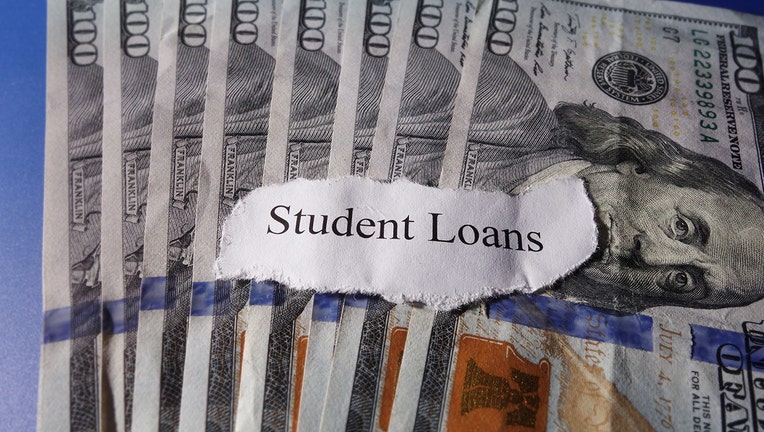Biden downplays student loan forgiveness in new report — what to do with your college debt now

President Biden this week downplayed potential student loan forgiveness. Here's how to manage your debt in the meantime. (iStock)
Student loan debt was a prominent topic during the 2020 presidential election, and many borrowers looked to then-candidate Joe Biden in hopes of forgiveness measures.
While President Biden campaigned on solving the college debt crisis, in a Thursday interview with The New York Times, Biden suggested that he doesn't wholly agree with the idea of federal student loan forgiveness.
And if you have private student loans, you're out of luck: forgiveness doesn't apply to those types. But borrowers could still look at refinancing while rates are low — visit Credible to shop around for refinancing rates today.
FIXED-RATE STUDENT LOAN REFINANCING RATES REMAIN AT RECORD LOW
Biden downplays college debt and ‘socialist agenda’
Many young adults enter the workforce inundated with debt thanks to the rising costs of college. American student loan debt has ballooned 361% between 2006 and 2021, according to the Federal Reserve, and it's the largest form of consumer debt besides mortgages.
So when Biden suggested he might adopt some more progressive stances on student loan forgiveness, such as canceling $10,000 worth of student debt per borrower, voters were hopeful that they might get some much-needed debt relief. But Biden downplayed this approach this week.
"The progressives don’t like me because I’m not prepared to take on what I would say and they would say is a socialist agenda," Biden told The Times.
BIDEN’S STIMULUS BILL’S EFFECT ON STUDENT LOANS: WHAT TO KNOW
Biden continued, skeptical about the idea of forgiving student loans for borrowers who go to expensive private schools, like the University of Pennsylvania.
"The idea that you go to Penn and you’re paying a total of 70,000 bucks a year and the public should pay for that? I don’t agree," Biden said.
Struggling with student loan debt? What to do
If you're still burdened by student loans, you're not alone. A third of U.S. adults have acquired some form of debt for their education, according to the Fed. Here's what you can do to manage your college debt in today's environment.
Refinance your private student loans while interest rates are low
If you have private student loans that don't have the same protections as federal student loans and aren't in forbearance, now is a good time to refinance to a lower interest rate.
Borrowers who refinanced to a shorter-term using Credible saved an average of $17,344 over the life of their loans. See how much you can save using a student loan refinancing calculator. When you're ready to refinance your private student loans, shop around for the lowest possible rate on Credible.
Take advantage of the current federal student loan moratorium
Federal student loans are in forbearance until Sept. 30, 2021. During this time, borrowers do not need to pay, and the loans do not accrue interest. Here are a few things you can do with your federal student loans at this time:
- Keep paying toward the principal of your student loans. You can chip away at your debt while interest is at 0% so that your balance is lower when the moratorium ends and payments resume. This can save you money on overall debt costs.
- Use the money from your student loan payments to pay down high-interest debt. Right now, paying down high-interest debt, like credit card debt, is a higher priority than paying down zero-interest federal student loans. If you have outstanding credit card balances, tackle those first.
- Save the extra cash for when student loan payments resume. You can put the money from your federal student loan payments in a high-yield savings account to help the balance grow until forbearance ends. Compare savings rates across multiple banks using Credible's online marketplace.
Have a finance-related question, but don't know who to ask? Email The Credible Money Expert at moneyexpert@credible.com and your question might be answered by Credible in our Money Expert column.

